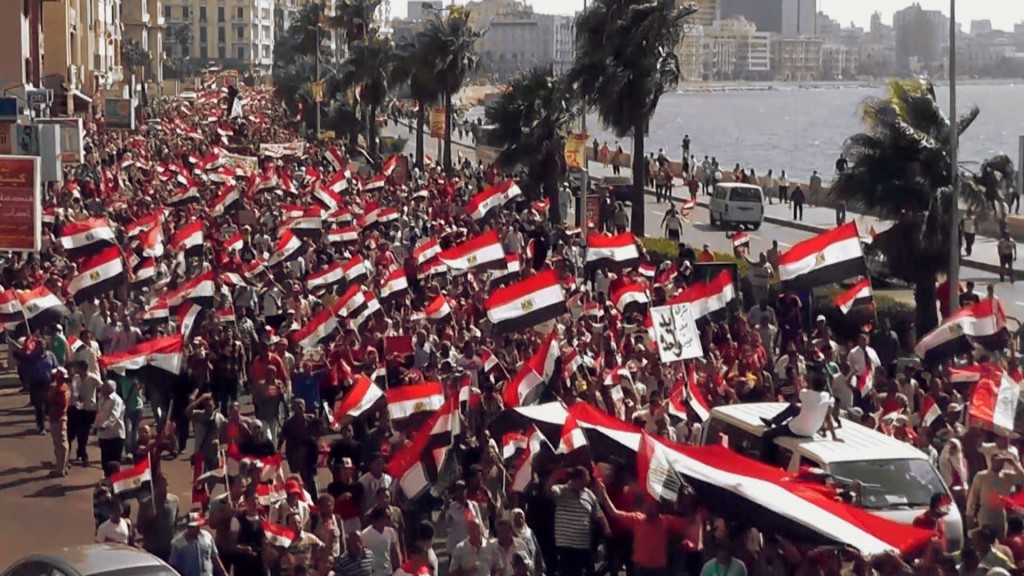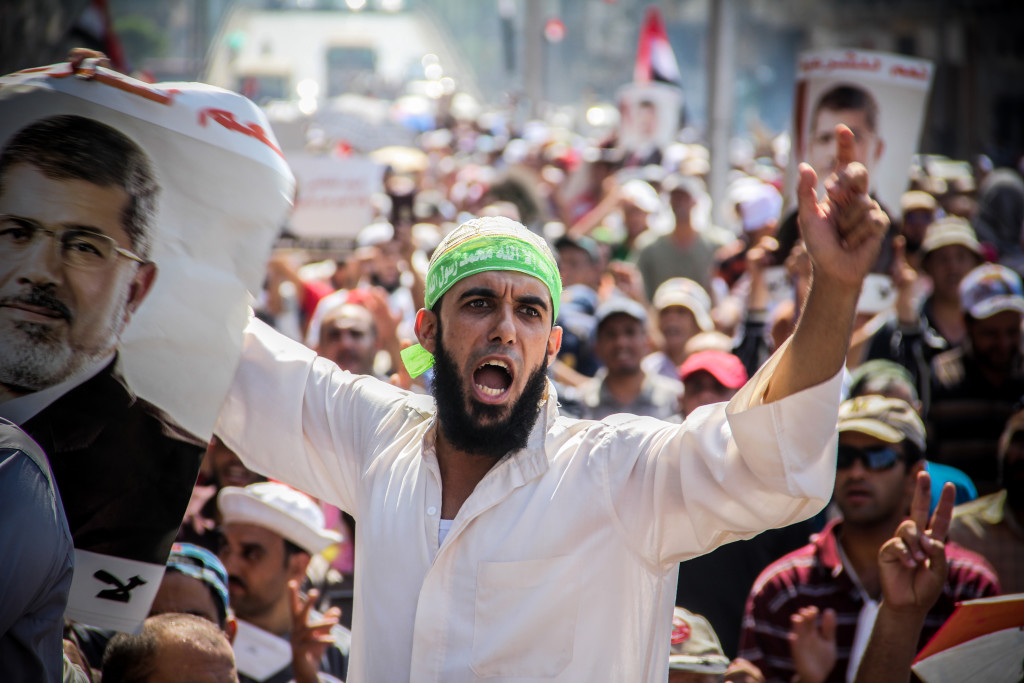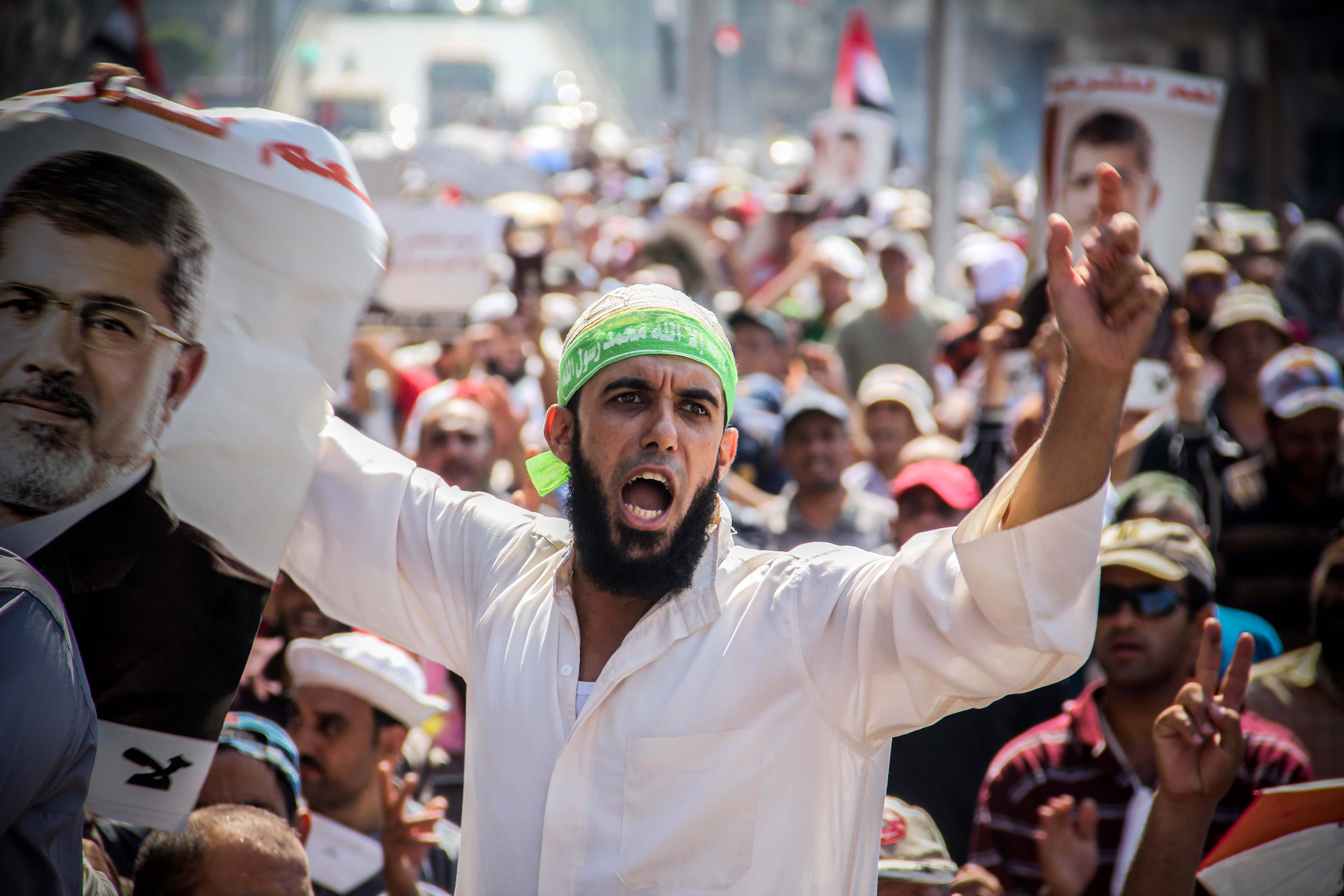Dig Deeper: More on Egypt’s Political Turmoil

September 17, 2013
Share
Want to know more? We’ve rounded up the best reporting on a post-Mubarak Egypt, from the revolution to the rise of the Muslim Brotherhood, and the nation’s new leader, Gen. Abdel Fattah el-Sisi.
Follow the developments in Egypt through our partners at GlobalPost.The Revolution and Its Aftermath
On the Square: Were the Egyptian protesters right to trust the military? Wendell SteavensonFeb. 28, 2011 The New Yorker
There was something surreal about the tanks on the square. Few armies enjoy being sent to the streets to restore civil order, and the tanks were not accompanied by any infantry. I spoke to George Ishak, the head of the opposition movement Kefaya (the name means “enough”), who said, “I believe the military will protect us. We trust in our military a lot because we don’t have anyone else to trust.” He also wondered why the Army had not contained the protesters more effectively. “I don’t know why,” he said, “but they are a little soft—delicate.” He rubbed his finger and thumb together, as if feeling a piece of cloth. “They face people in a very gentle way.” He also said, “The military is a black box, and no one knows what happens inside.”
In Egypt, the ‘Deep State’ Rises Again Charles Levinson and Matt BradleyFebruary 10, 2012 The Wall Street Journal
In the months before the military ousted President Mohammed Morsi, Egypt’s top generals met regularly with senior aides to opposition leaders, often at the Navy Officers’ Club nestled on the Nile.
The message: If the opposition could put enough protesters in the streets, the military would step in—and forcibly remove the president. “It was a simple question the opposition put to the military,” said Ahmed Samih, who is close to several opposition attendees. “Will you be with us again?” The military said it would.
The Revolution That Wasn’t Hugh RobertsSept. 12, 2013 The London Review of Books
To think about the recent appalling turn of events in Egypt in terms of an original ‘revolution’, with 25 January 2011 as the start of Year One, is to amputate the drama of the last two and half years from its historical roots, the story of what the Egyptian state became during the later stages of Hosni Mubarak’s protracted presidency. This is not a simple affair. It is the story of what the Mubarak presidency signified for the Egyptian state, for its various components, especially the army, and for its form of government, but also of what it signified for the various types of opposition his rule provoked or allowed. All this combined in the gathering crisis of the state itself, a crisis that was building long before the revolution in Tunisia got underway.
Sudden Improvements in Egypt Suggest a Campaign to Undermine Morsi Ben Hubbard and David D. KirkpatrickFebruary 10, 2012 The New York Times
The apparently miraculous end to the crippling energy shortages, and the re-emergence of the police, seems to show that the legions of personnel left in place after former President Hosni Mubarak was ousted in 2011 played a significant role — intentionally or not — in undermining the overall quality of life under the Islamist administration of Mr. Morsi.
Who Is el-Sisi?
The Quiet General: What Does Egypt’s Ruler Want? Mike Giglio and Christopher DickeyAug. 16, 2013 Newsweek
“That Egypt has a new strongman is no longer in doubt. …But understanding al-Sisi is critical to understanding where Egypt is headed—especially after this week’s bloodletting, which has seen his soldiers crack down on pro–Muslim Brotherhood demonstrators. And one place to begin is in Cairo’s ancient Khan al-Khalili bazaar, in a shop called Al-Sisi, where finely crafted Egyptian boxes made of intricately inlaid mother-of-pearl grace the shelves.
Egypt’s General Has Country Wondering about Aims Kareem FahimAug. 2, 2013 The New York Times
“The conflicting perceptions of General Sisi — seasoned officer reluctantly answering a call to serve, ambitious man with a “sense of destiny,” as one person who knows him put it — leave much of Egypt wondering whether he intends to return the country to civilian rule, as he has repeatedly promised, or to capitalize on public support for him by seeking power, formally or informally, for himself.”

Related Documentaries
Latest Documentaries
Related Stories
Related Stories
Explore
Policies
Teacher Center
Funding for FRONTLINE is provided through the support of PBS viewers and by the Corporation for Public Broadcasting, with major support from Ford Foundation. Additional funding is provided the Abrams Foundation, Park Foundation, John D. and Catherine T. MacArthur Foundation, Heising-Simons Foundation, and the FRONTLINE Trust, with major support from Jon and Jo Ann Hagler on behalf of the Jon L. Hagler Foundation, and additional support from Koo and Patricia Yuen. FRONTLINE is a registered trademark of WGBH Educational Foundation. Web Site Copyright ©1995-2025 WGBH Educational Foundation. PBS is a 501(c)(3) not-for-profit organization.





















